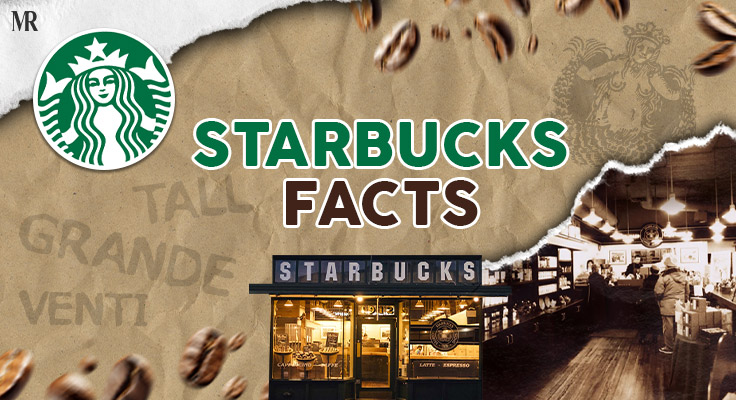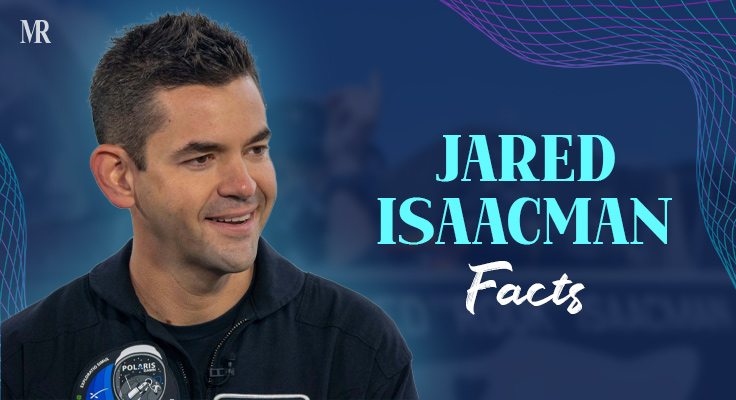“Opportunities don’t happen. You create them.” 7-Eleven company’s history from a small neighborhood store to a global retail giant extraordinarily proves this quote. Interestingly, what started as a humble ice house in 1927 has today grown into the world’s largest convenience store chain, ‘the great 7-Eleven!’ That’s impressive! Isn’t it?
Known for its iconic Slurpees, 24/7 service, and customer convenience at every corner, 7-Eleven’s journey is packed with innovation, ambition, and a persistent chase for success. However, in this blog, you will learn everything interesting about the 7-Eleven company’s history behind its incredible success today. So, are you excited? Let’s quickly get started!
Firstly, let’s know the early beginnings of the 7-Eleven company
7-Eleven started in 1927 in Dallas, Texas. It was originally an ice house storefront, selling ice blocks to help people keep their food cold. This was before refrigerators were common in homes. The store quickly became popular for its convenience.
However, the first name of the store was ‘Tote’m Stores.’ The name came from the idea that customers could ‘tote’ or carry their goods away. The stores even had totem poles outside as a fun decoration. This name reflected the store’s focus on convenience.
But, why is 7-Eleven called 7-Eleven?
Let’s go back to the origin of the name. We all know that the name ‘7-Eleven’ was chosen in 1946 to highlight the store’s extended hours. However, at that time, most stores closed early, but 7-Eleven stayed open from ‘7 a.m. to 11 p.m.,’ seven days a week. This was very convenient for customers who needed to shop outside regular hours.
Looking at customer convenience, the extended hours were a big deal because people could shop before or after work. This made 7-Eleven stand out from other stores. It showed that the company cared about making life easier for its customers. Therefore, this added to the 7-Eleven company’s history as a mark of accepting change with dignity.
Additionally, in the 1960s, 7-Eleven started staying open 24 hours a day. This was a revolutionary change in the retail industry. It meant that people could shop, at any time, day or night, which was very convenient.
Furthermore, today, most 7-Eleven stores are open 24/72. This continuous availability has become a standard for convenience stores. Moreover, it ensures that customers can always find what they need, no matter the time.
Now, let’s talk about an innovative product of the company
In 1966, 7-Eleven introduced the ‘Slurpee,’ a frozen drink. It quickly became a popular and iconic product. The Slurpee is known for its unique flavors and refreshing taste. It shows the company’s ability to create popular new products adding to the 7-Eleven company’s history.
In 7-Eleven company’s history, let’s have a glance at it becoming a convenience leader
- 24/7 Operations
In the 1960s, 7-Eleven started staying open 24 hours a day. This was a big change and made it even more convenient for customers. People could now shop at any time, day or night. Hence, this move set a new standard for convenience stores.
- Big Gulp
Looking at the 7-Eleven company’s history, the Big Gulp was introduced in 1976. It is a large-sized soft drink that became very popular. However, people loved the idea of getting a lot of drinks for a low price. However, the Big Gulp is another example of 7-Eleven’s innovative products.
- ATM Services
In the 1980s, 7-Eleven started offering ATM services in their stores. This was a new and convenient service for customers. It allowed people to withdraw money while shopping. Therefore, this made 7-Eleven even more useful for everyday needs.
Now let’s chat about the 7-Eleven company’s global expansion and ownership change
In 1991, a Japanese company called Ito-Yokado bought a 70% stake in 7-Eleven. This was a turning point in the 7-Eleven company’s history. The new ownership brought fresh ideas and strategies. It helped 7-Eleven grow even more, especially in Asia. Today, the company has over 84,000 stores across 19 countries. Isn’t that impressive?
Now, are you wondering about the modernization and technological integration of the 7-Eleven?
- Mobile App
Interestingly, the 7-Eleven mobile app provides rewards, discounts, and payment options. Customers can use the app to find deals and earn points. It makes shopping at 7-Eleven even more convenient. Thus, the app is a modern tool that enhances the customer experience adding to the 7-Eleven company’s history.
- Delivery Services
Furthermore, 7-Eleven offers delivery through its 7NOW app. Customers can order their favorite items and have them delivered to their door. This service is very convenient, especially for busy people. It shows 7-Eleven’s commitment to meeting customer needs.
- Healthier Options
Moreover, 7-Eleven has been adding more healthy food options. These include fresh fruits, salads, and other nutritious items. This change caters to health-conscious customers. Therefore, it shows that 7-Eleven is adapting to new trends in eating habits.
- Private Label Products
The 7-Eleven company’s history proves that it offers many private-label products. These are items made specifically for their stores. They include snacks, beverages, and household items. However, private-label products often provide good quality at lower prices.
- Franchise Model
Indeed, many 7-Eleven stores are franchised. This means local entrepreneurs can own and operate their own stores. And, the franchise model helps 7-Eleven expand quickly. It also supports local business owners.
- Technology Integration
7-Eleven uses advanced technology for inventory management and customer service. Interestingly, this helps them keep track of products and serve customers efficiently. Technology makes operations smoother and more effective. Thus, it shows the firm’s commitment to innovation adding value to 7-Eleven company’s history.
Let’s understand 7-Eleven company’s sustainability and community engagement
Firstly, let’s know about the firm’s sustainability efforts! In 2023, 7-Eleven partnered with Too Good To Go to save over 130,000 meals from waste. This effort helps reduce food waste and supports sustainability. It shows 7-Eleven’s commitment to the environment. They are working to make a positive impact on the planet.
Then comes the 7-Eleven company’s charity work. In 2023, 7-Eleven raised more than $18 million for Children’s Miracle Network Hospitals. However, this money helps support children’s hospitals and healthcare. It shows 7-Eleven’s dedication to giving back to the community. And, their charity work makes a big difference in many lives and is one of the generous highlights in the 7-Eleven company’s history.
Additionally, 7-Eleven is expanding its electric vehicle charging stations. This supports the growing number of electric cars. It makes it easier for people to charge their vehicles while shopping. Therefore, this effort promotes sustainable transportation.
Also, 7-Eleven is involved in many community support activities. They organize volunteer initiatives and in-store fundraising events. This engagement helps build strong relationships with local communities. It shows that 7-Eleven cares about more than just business.
Furthermore, 7-Eleven invests in training programs for its employees. This ensures that staff can provide high-quality service. Well-trained employees make the shopping experience better for customers. It also helps employees feel more confident and capable.
Now, are you wondering about 7-Eleven’s customer loyalty?
Well, 7-Eleven has a strong customer loyalty program. Frequent shoppers can earn rewards and get special offers. This program encourages customers to keep coming back. It helps build a loyal customer base adding immense light to the 7-Eleven company’s history.
And, talking about their global recognition, 7-Eleven is a well-known brand around the world. People recognize it for its convenience and customer service. This global recognition helps attract customers. It also strengthens the brand’s reputation.
Additionally, 7-Eleven stores offer a wide range of products. These include everyday essentials and unique local items. The diverse offerings cater to different customer needs. And, it makes 7-Eleven a one-stop shop for many people.
Moreover, the brand has always been recognized for continuous innovation. 7-Eleven is always looking for new ways to improve. They adapt to changing customer needs and market trends. This continuous innovation keeps them ahead in the retail industry. It ensures that 7-Eleven remains a leader in convenience stores.
What about 7-Eleven achieving global giant status?
Well, looking at the global expansion in 7-Eleven company’s history, we learn that by 2024, 7-Eleven will be operating over 71,100 stores in 19 countries. This massive growth shows how successful the company has been. They have adapted to different cultures and markets around the world. This global presence makes them a true retail giant.
Additionally, 7-Eleven is the largest convenience store chain in the world by the number of stores. This means they have more locations than any other similar store. Their widespread presence makes them very accessible. People can find a 7-Eleven almost anywhere.
End Note
As we conclude our journey through the 7-Eleven company’s history, we realize that ‘great things can come from the simplest beginnings.’ With a commitment to convenience, innovation, and customer satisfaction, 7-Eleven has become a household name worldwide.
From a single store in Dallas to a global empire, 7-Eleven has continuously evolved to meet the needs of its customers. Therefore, 7-Eleven’s journey proves the power of innovation, adaptation, and customer-first thinking. That’s inspiring! Isn’t it? Well, if you found the 7-Eleven company’s history encouraging, share their journey with all your friends who enjoy learning about the success stories of global giants and aspire to become one someday.












